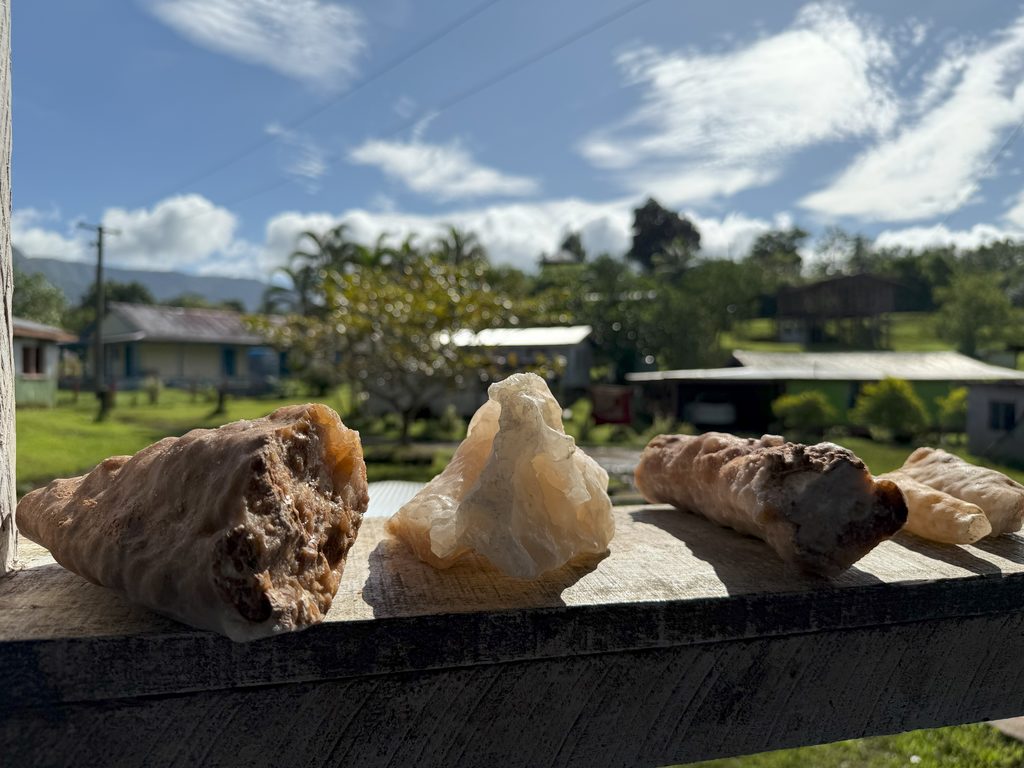NALIDI, situated near the mist-covered Uluivuda mountain range in Ra’s heartland, is a splice of paradise waiting to be discovered.
The village sits on a fertile valley floor, semi-surrounded by limestone mountains, whose thick carpet of towering trees, emerald grasslands and cascading streams provide the natural ingredients for a montane haven of sorts.
To access Nalidi, one has to veer off the road just before Nayavu government station in Wainibuka and brace for a few kilometres of jerky ride inland. Here, nature’s splendour will scream loudly at you with its rich kaleidoscope of tastes, sights and sounds.
The Sunday Times team visited Nalidi this week in a quest to explore a cave that was discovered a few weeks ago by 20-year-old farmer, Peni Kedremau.
For those who don’t know, Nalidi straddles an area believed to have hosted an ancient i Taukei civilization and society much older than the Nakauvadra story.
Its members are descendants of a group of people who settled in a mountain village known as Nakorowaiwai hundreds of years ago.
The one thing that grips the heart about Nalidi is its people – simple, big-hearted and respectful. They honour their deeply held beliefs and traditions but can also embrace the modern visitor within their village boundary.
Life in general is slow-paced and calm while nature is unparalleled in grace. With endless greenery and open blue heavens by your side, the air is crisp and refreshing like the February sun.
We departed a cloud-riddled Suva last Sunday, uncertain about what awaited us. But our feelings of skepticism subsided after our sevusevu was accepted with palpable warmth and smiles. Elders assured us their blessings and opened up their world for discovery.
What ensued were three days of intimate interaction with the locals, moments of joyous laughter and the rare chance of absorbing the natural aesthetics of the area.
On the first night, we got introduced to an old man in his 60s we later called ‘shake-me-nini’. He cracked the most hilarious of jokes and made our nightly sit-downs and body fatigue awesomely tolerable.
No village is complete and orderly without a headman or turaga ni koro. He is the unrecognised and underpaid ‘operations manager’ of the village – one who organizes events, communicates information and gets the work done.
In fact, life in a Fijian village would be virtually chaotic and undisciplined without ‘turani’.
Nalidi is fortunate to enjoy the selfless services of headman Luke Koro and his supportive wife, Sera Toga.
For 20 years, the husband-and-wife team has been the engine room of Nalidi and the standard-bearers, willingly sacrificing their life and time for the good of the community.
“I have offered to resign many times but each time the people have asked me to continue,” Koro said.
“I was always reminded of the important role I play in the smooth and daily operations of the village.”
The couple ensured we ate at the right time, had plenty of food and slept in comfort and peace each night we pulled through a hectic day of work. Even with seven children to look after, they always made sure we were comfortable.
Nalidi provides redemption for the urban carefree eater who only knows fastfood and takeaways. The women of the village pride themselves in preparing and cooking healthy food for the family, which almost always includes rourou and bele.
Ota grows prolifically in the wild so accessing green vegetables is never a problem.
For meat protein, the rivers and streams beside the village are great sources of crabs, prawns, eels, beli, tilapia, vo and daridarikai. Food is often boiled so don’t be shocked to eat straight meals of boiled vegetables and root crops.
The river is also never reluctant to provide a cool respite to villagers during extremely hot days. It is where children and adults gather and connect, find joy and sustenance, and enhance their sense of unity and pride.
I got to taste stir fried offal (organs of a cow) served on a bed of rice. Eating pieces of bovine lungs, liver and heart was not what I expected to have in Nalidi but I did so happily because I did not want to miss the experience.
Internet reception was poor so we were not bothered by politics and urban drama that very often take up space and time in the news. Horse and vans were the preferred mode of transport.
Our main activity in Nalidi was exploring the newly discovered cave with the assistance of the villagers. We were told nobody knew about its existence, even the four people who grew up in Nakorowaiwai.
“This is a new cave altogether. Growing up I never heard anything about it,” 73-year-old Sakiusa said.
The subterranean limestone grotto is a work of wonder, showcasing the patient and perfect artistry of mother nature. The spikes of stalactite and stalagmite on the ceiling of the cave looked breathtaking in limited lighting much like chandeliers in a Gothic cathedral.
Some parts of the cave had skeletons in them, belonging to people who probably occupied Uluivuda in olden day Fiji.
It took me a good two hours to trudge uphill to Nakorowaiwai where the blurred skyline was ruled by towering mist-capped mountains. There we enjoyed a bird’s eye view of the world below us, offering a renewed perspective of life at the top and an appreciation of nature’s intricate patterns and hues.
All in all, my time in Nalidi gifted me with a sense of rejuvenation and healing, things that by choice, had escaped me for some time now.
I returned home feeling like I had reoriented myself, and developed a deeper appreciation of different cultures, values and beliefs.
Looking back, I can only yearn to go back one day. But as they say ‘only time will tell’.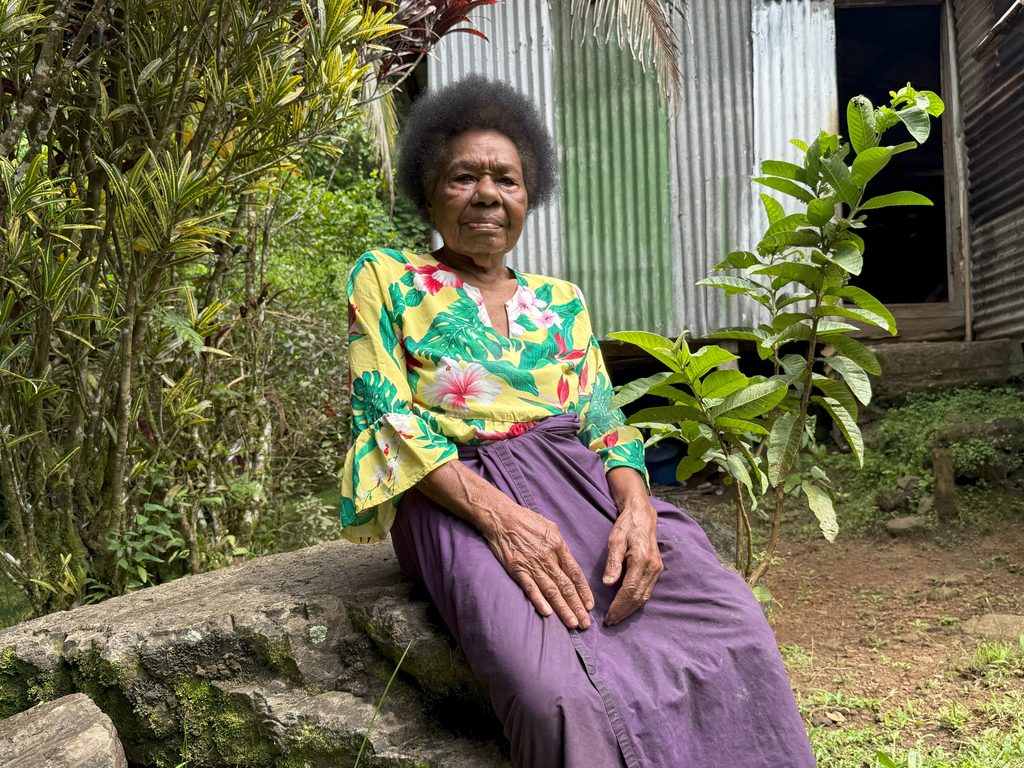
Nalidi’s oldest woman, 93-year-old Marica Waqavono. Picture: ALIFERETI SAKIASI
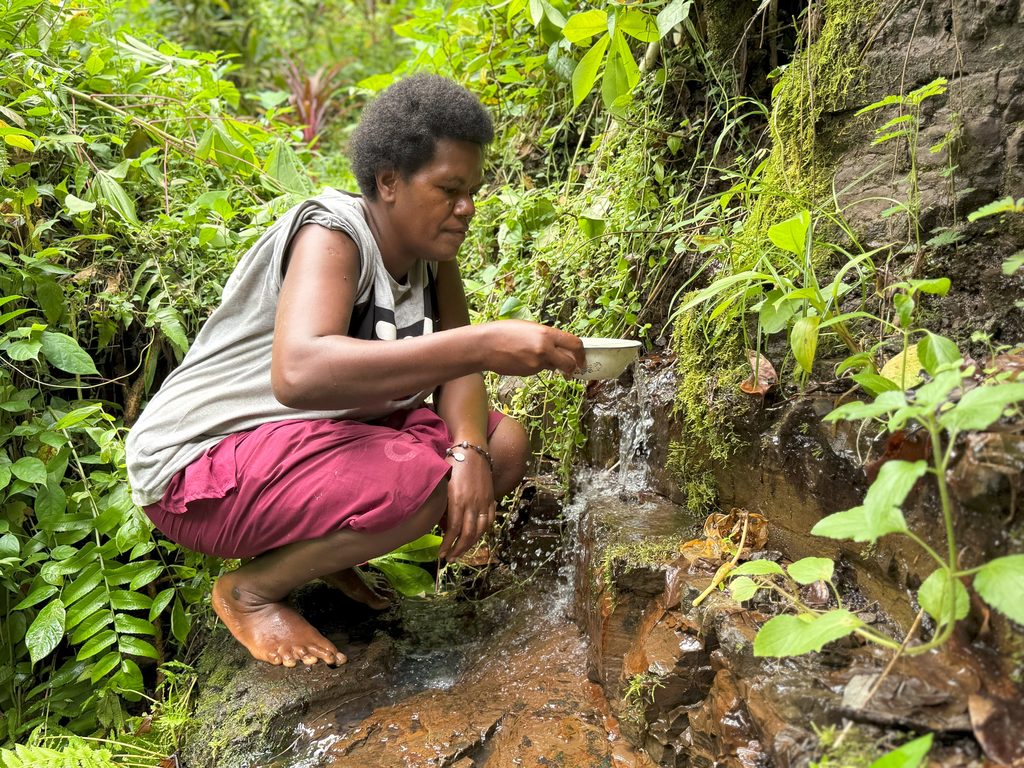
Drinking natural water from a cliff wall. Picture: ALIFERETI SAKIASI
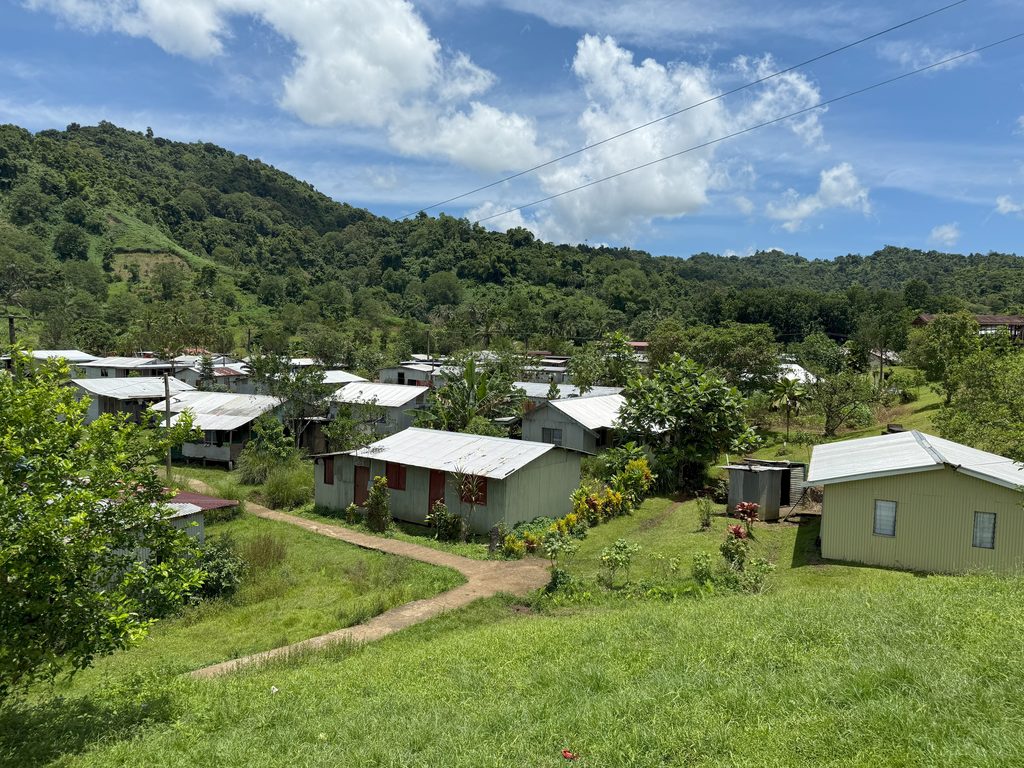
A shot of Nalidi Village in Nakorotubu, Ra. Picture: ALIFERETI SAKIASI
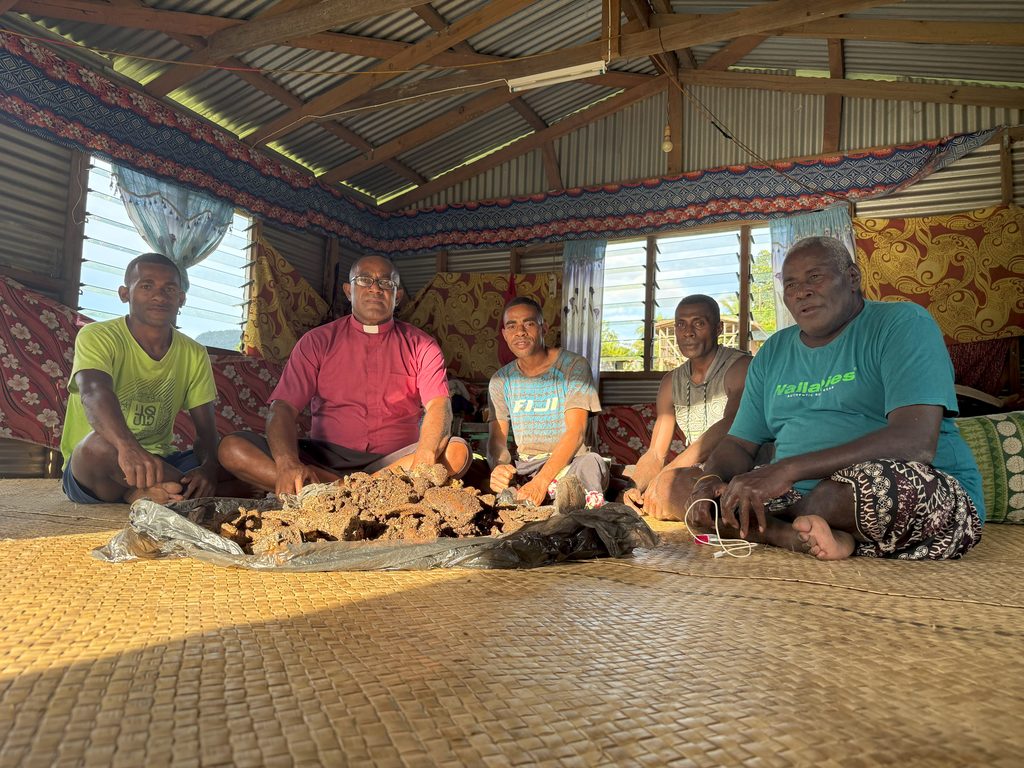
Villagers with a pile of bones collected from within the cave. Picture: ALIFERETI SAKIASI
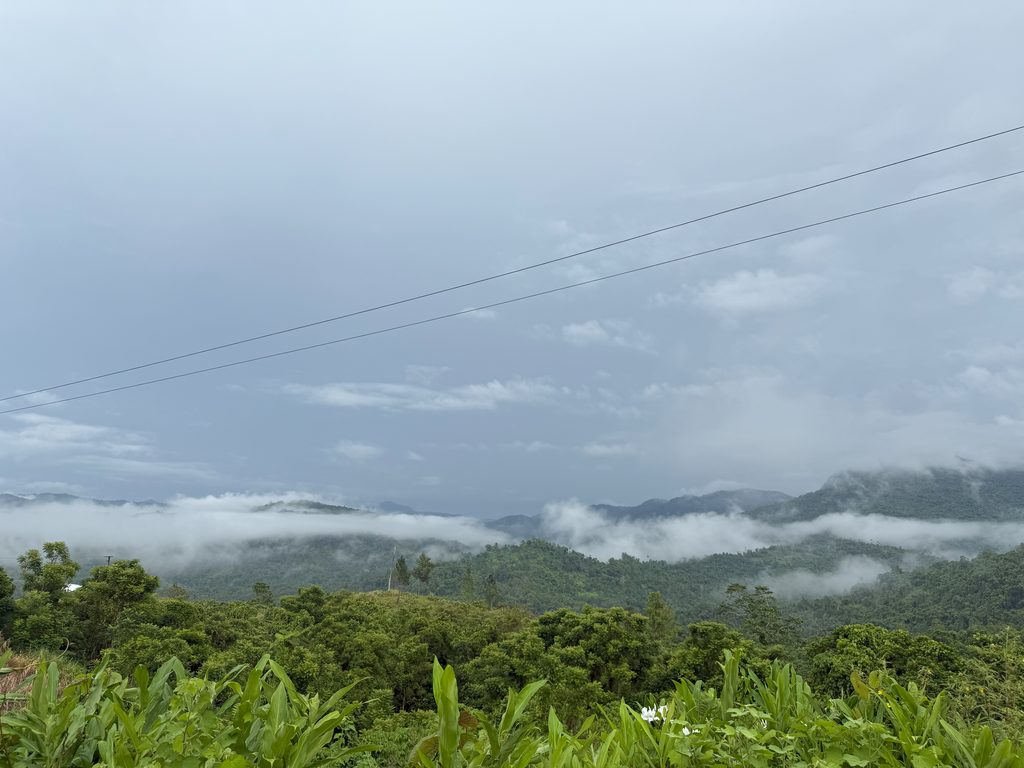
Mist settles on towering hills and trees in the Uluivida mountain range. Picture: ALIFERETI SAKIASI
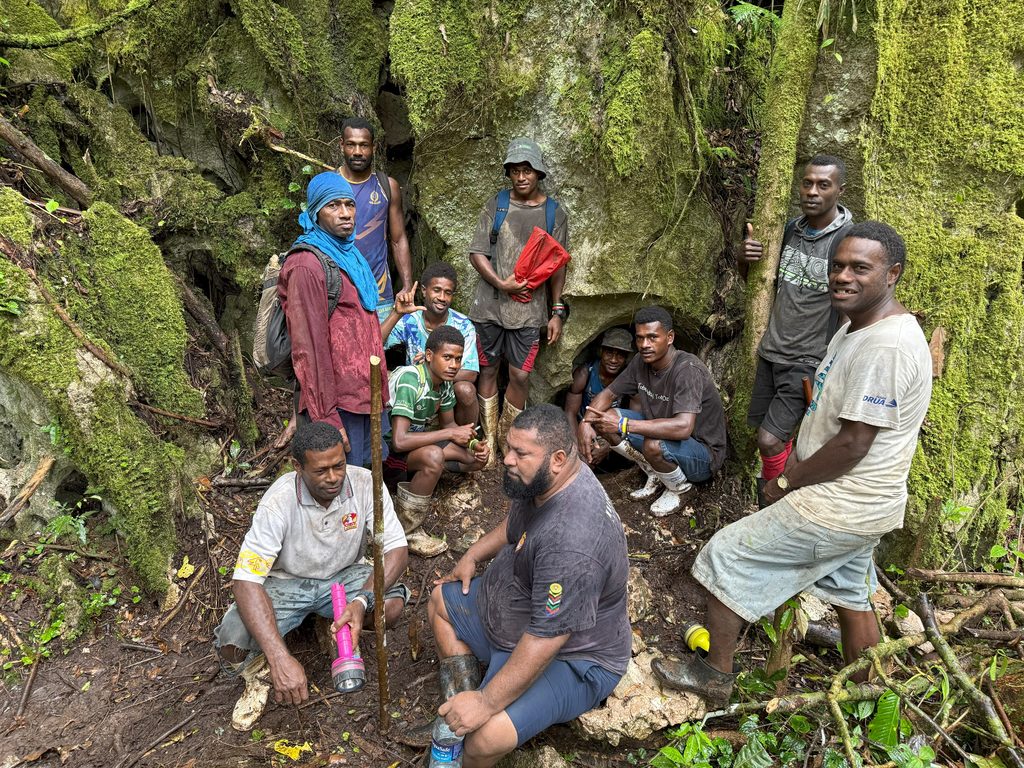
Villagers who helped the team hike the mountains and explore the cave. Picture: ALIFERETI SAKIASI
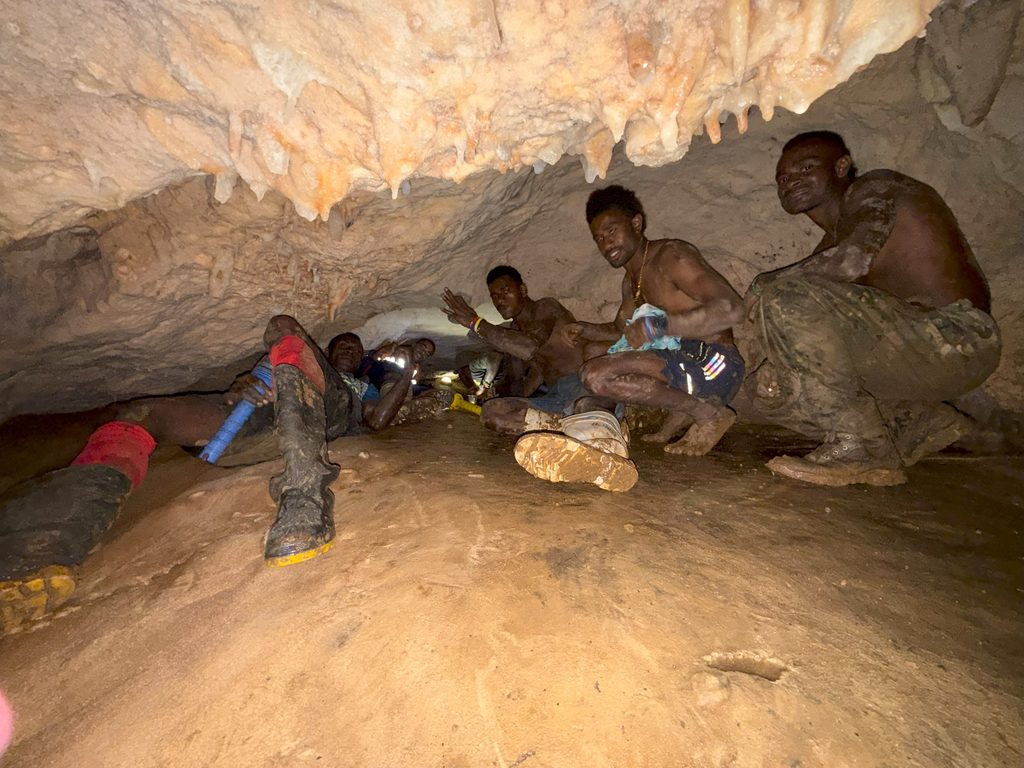
Village boys slide down a narrow opening into the cave.
Picture: ALIFERETI SAKIASI
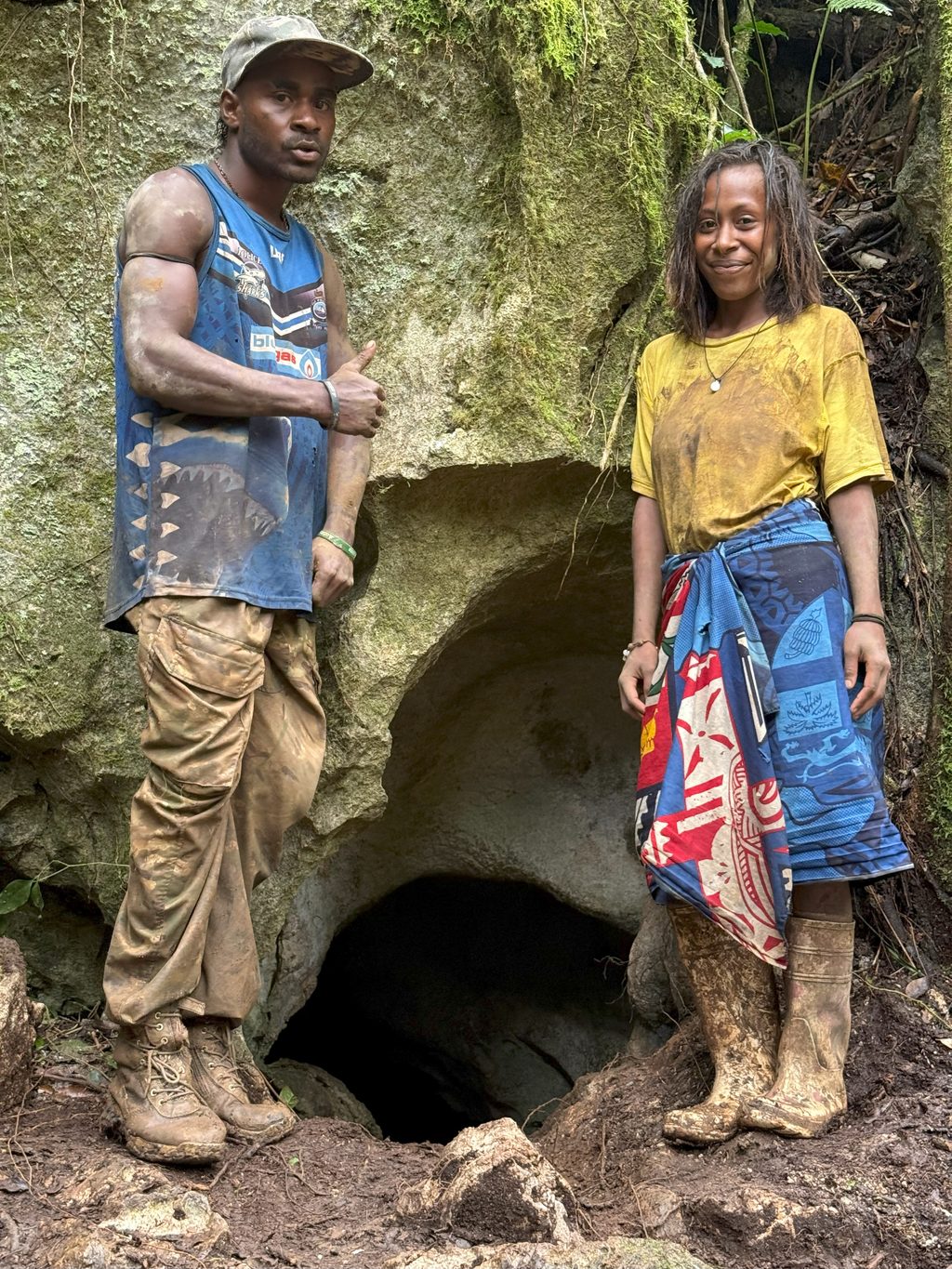
Peni Kedremau anbd wife, Sera, were the first couple to enter the cave. Picture: ALIFERETI SAKIASI
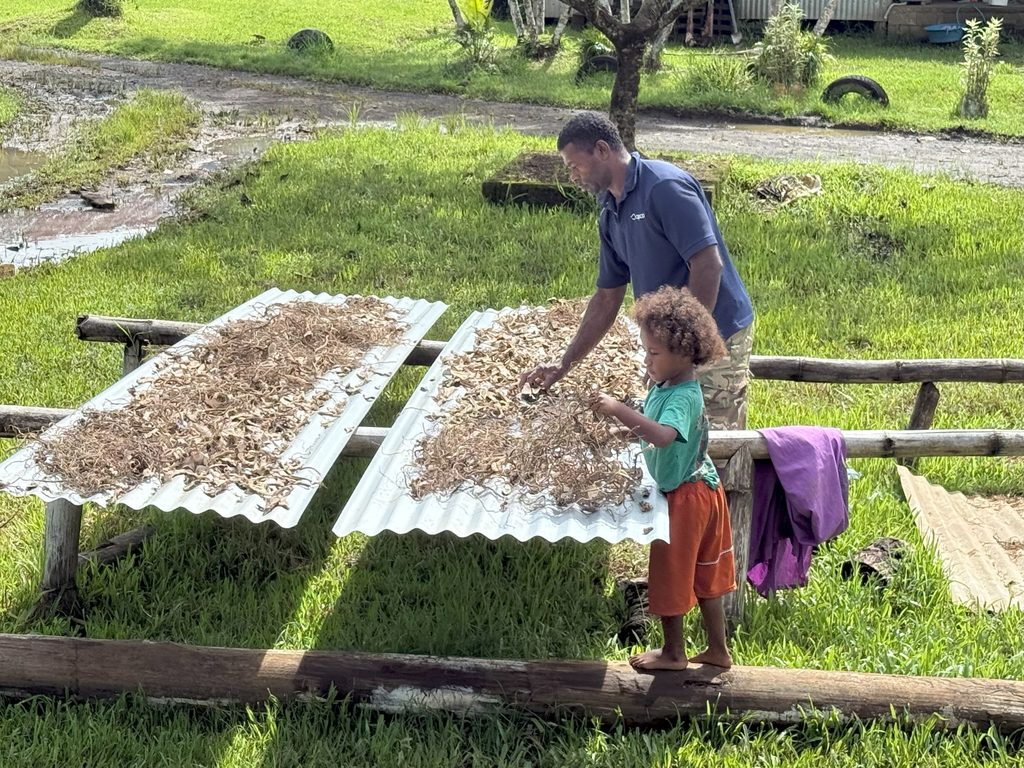
A villager dries his yaqona plants in the sun with the help of his daughter. Picture: ALIFERETI SAKIASI
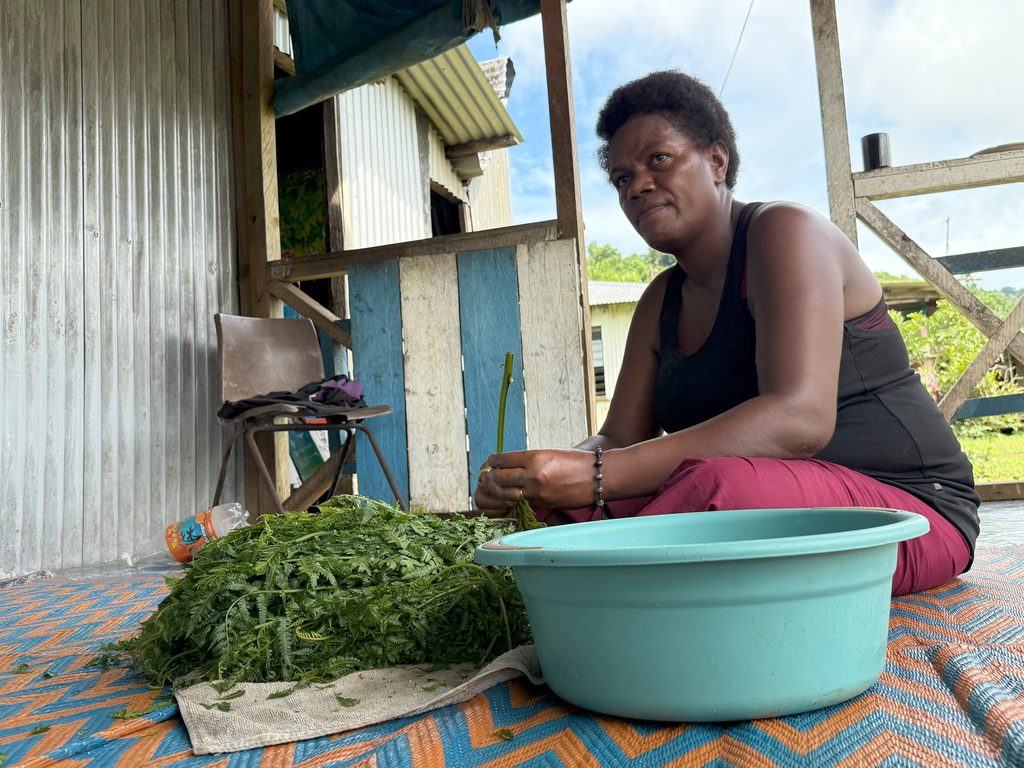
Sera Toga prepares a dish of raw ota for lunch.
Picture: ALIFERETI
SAKIASI

